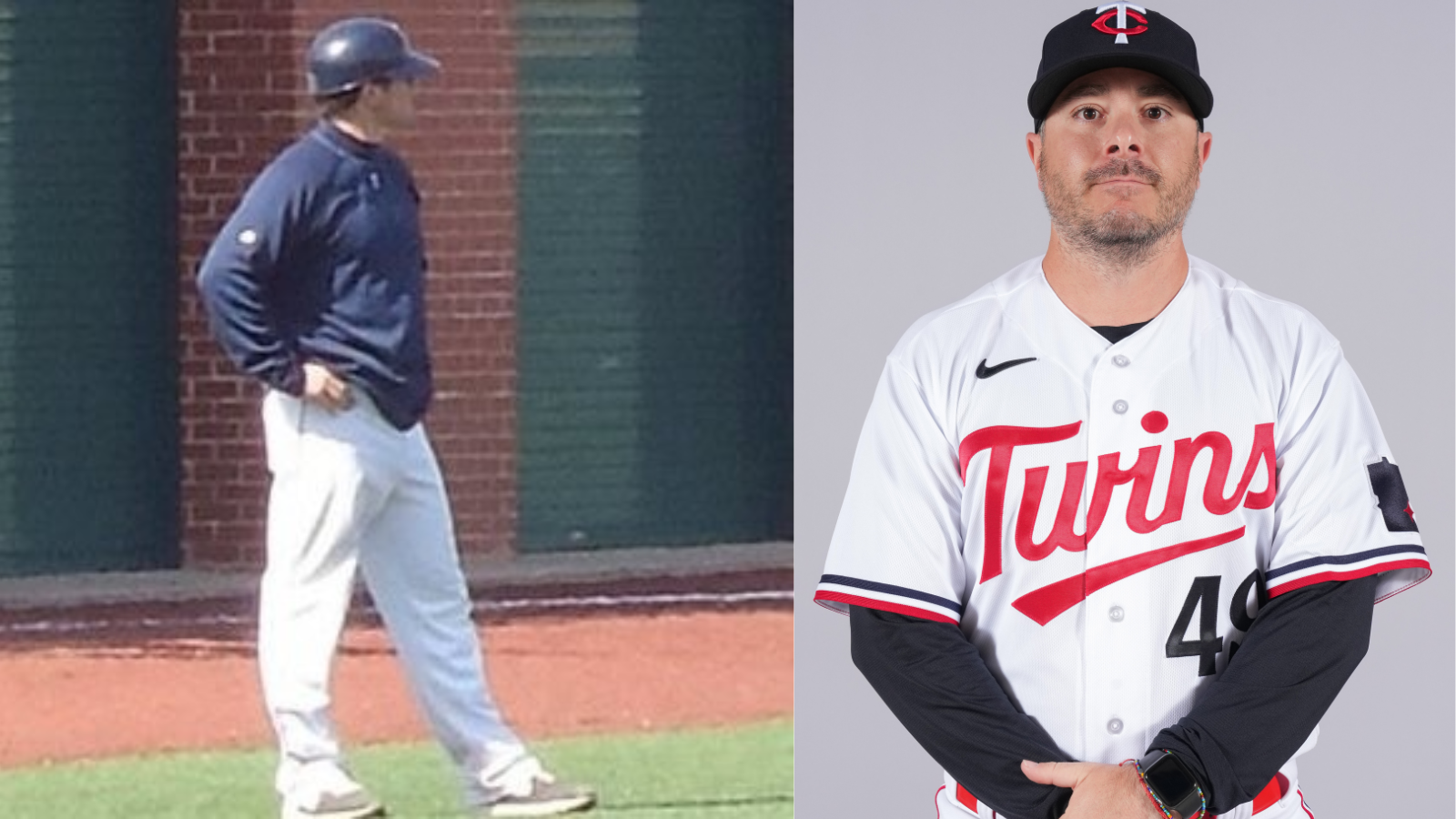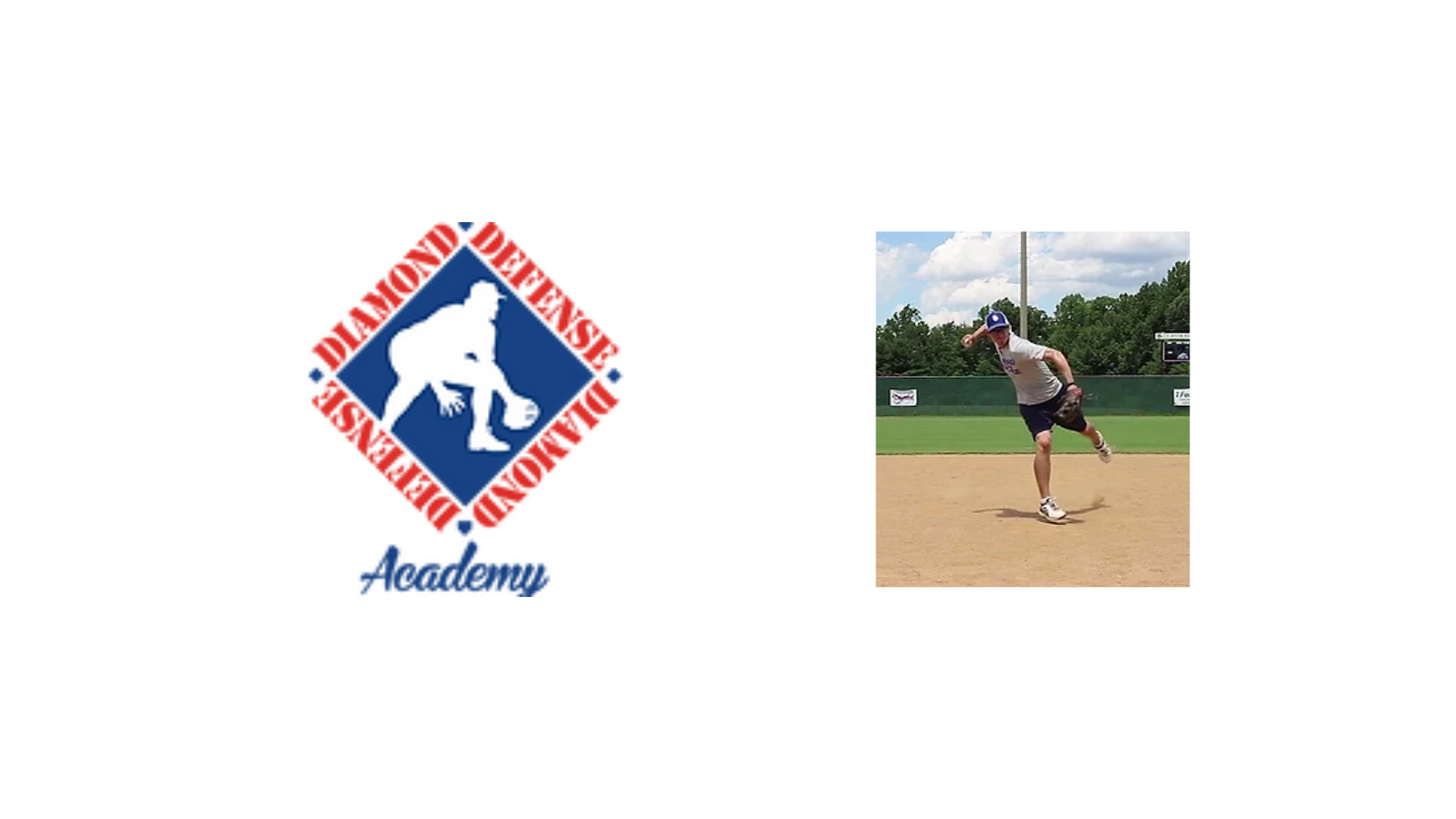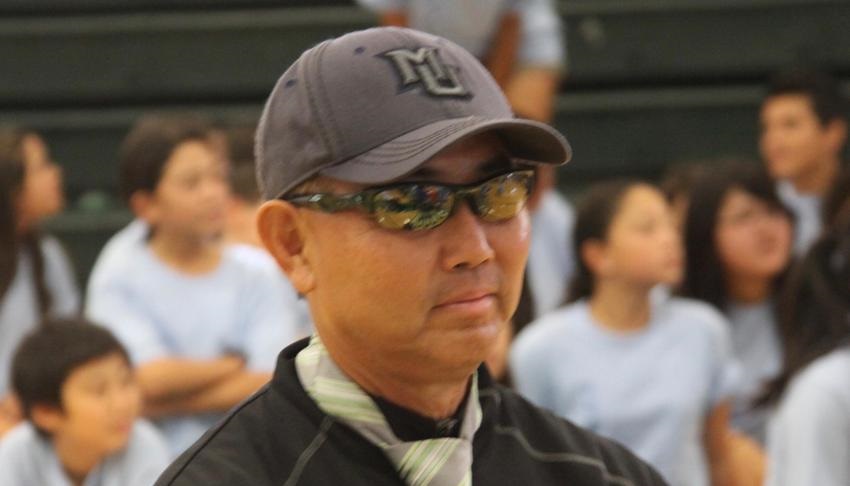Alex Oglesby has 25 years experience coaching baseball so she’s the ideal person for us to talk to in our latest Q&A about teaching defensive excellence.
Alex is the first in our group who works largely with girls and women’s players, coaching them from Little League to the national level. She’s the president of Evolution Girls Baseball in the San Francisco area and is also an assistant coach for Team USA’s Women’s Baseball Team.
Alex played boys’ high school baseball then played two years in the late 1990s in the Ladies Professional Baseball League. As a 17-year-old catcher, she was league Rookie of the Year and Defensive MVP.
Alex shared her origin story and lessons she’s learned that she passes along to the next generation. The interview has been edited for clarity and length. Click here to see our other interviews.
Alex: I actually did start with girls softball and a little bit opposite of most girls these days. They start with baseball and transition over to softball.
I did the opposite and I started with softball and then got the opportunity to play high school baseball. And from there, I just fell in love with it. I declined some college scholarship offers, which in hindsight probably wasn’t really smart, but it worked out great for me. And then right out of high school there was a women’s professional league that started.
I was lucky to get to play in that. At the beginning of my college years I met a lot of different people playing women’s baseball that I had no idea even existed. And then I got to represent the USA Baseball National Team for the first World Cup.
Mark: When you were first learning to play, how did you learn the defensive side?
Alex: I started playing softball because my friends were doing it.
Nobody raised their hand to be a catcher. And I thought, I guess I can catch the ball. I really had no idea what I was getting into. And I put the gear on, they put me back there and I started catching and I went home and told my dad and then found out that my dad actually was a catcher.
My dad (Ed Sickinger) played minor league baseball with the Giants. And he had a huge baseball background, but I just never really was interested enough, I guess, to ask all the right questions of him. As I started catching, he really truly just had an old school train of thought and didn’t know girls what girls could play or what they did in athletics.
So it was new to him too. He was my first true coach in the sense of teaching me the skills I needed, and I just really loved it. I loved being in the action of the game. The first thing he taught me was you just don’t let the ball get by.
You just, whatever you do, your job is to block that ball. Whatever after you have to use, whether it be your arms, your mask, your legs, your glove, whatever it is, you just know, don’t let the ball go by you. I think that was my first lesson in defense as a catcher and as a ballplayer.
And then it just blossomed from there. I just always will remember my dad telling me a passed ball is a run, a passed ball’s a run. That was forever drilled into my head. And even if there were no runners on and the ball got by me, in my head, that was a passed ball.
So it could be a wild pitch, it could be whatever you want to call it. And it didn’t even have to go down in the scorebook as such in my head. Somehow a run was gonna score if that ball got by me. I’m not gonna let my team down, and that ball was not gonna be by me.
Mark: You were the defensive player of the year when you were 17 in that women’s professional league.
Was that for your blocking, was that for your basestealing prevention? Was that for your framing? What was it for?
Alex: I think my blocking was my strong point. Having a passed ball was like the end of the world to me.
With that, I gained a huge trust in my pitchers. And they knew that they could keep the ball low, right? I framed really well. I received really well. I think runners didn’t really steal off me, but it wasn’t because of my arm’s strength as much as just my quickness and agility.
But my strength was for sure my blocking and receiving.
Mark: How do you now teach defense to kids?
Alex: Relearning how to coach catching took a lot of research on my end because it’s changed so much over the last five years. However, one thing remains the same. You don’t let the ball go by you.
So your goal is to not let the ball go past you and to help your pitchers through the game. I’m really trying to pass that on. My son actually catches as well. I’ve had a fun time getting to have similar conversations with him as I have my dad.
With every kid that I coach that catches, it’s really a lot of conversations about, okay, if this, then what? And helping them to think through the game.
My background is in teaching physical education. And I love teaching and coaching through guided discovery in the sense of letting them figure it out and guiding them towards the answer versus just telling them what to do.
Your best catcher is one that really knows the game. They’re your eyes and ears and they’re your other coach out there, essentially. Being able to get them to start thinking about the game in that perspective is going to be one of the best things that you can teach them.
If they can think on their feet, if they can direct the game, if they can handle a pitcher and help them through the game without you having to do all of that that’s gonna make them ultimately the best.
You are to not let that ball get past you. We want to block the ball even when there aren’t runners on, because we want your pitcher and your umpire to trust you. And then teaching the skills that go with that.
Mark: Do you coach infielders or outfielders too or are you almost exclusively catchers?
Alex: I do coach other positions. I have two sons. I coach their Little League teams as well as help out with their travel ball team. And then I also have our Girls u-18 team.
And then I coach with the USA national team. With the women’s national team, I’m predominantly the catching coach, although we all really work together in that environment. With infielders and just overall defense, let’s just say team defense.
Mark: What does defensive excellence mean to you?
Alex: That aspect, is as much to do with mental as it is physical, really talking to the players about knowing the play ahead, being ready every pitch, and wanting the ball to be hit to you. And then just consistently making the routine plays.
So that the physical side of it being the how do you make those routine plays consistently, but also not being afraid to fail on the extraordinary ones. And I teach this with the catchers as well, I really feel like if they’re afraid to take risks out there and try new things they’re never gonna grow from good to great.
So take the chance, charge the ball, throw on the run, backhand the ball, dive for the ball, do the things that are gonna push you out of that comfort zone. As catchers, it might be back picks to first base and things like that. Even pickoffs at third. I want them to try those things, especially when they’re younger.
They can get good at it in a situation where either the game’s not on the line or your livelihood isn’t on the line as a professional player. I want them to practice those things. I want them to fail or know it’s okay to fail because that’s just gonna get you closer to success.
Mark: Do you have any favorite drills?
Alex: Blocking drills and just going through progressions all the way through. Whether they are very beginner stages or advanced, I think it’s important to make sure that you start and progress up. Obviously a more advanced player is going to be able to progress quicker through those.
But I think it’s important to make sure that they get their work in and don’t forget the basics. With the younger players, pushing them a step past what they’re capable of, so that they have something to work towards in the progression.
When it comes to infield, I guess the easiest way to say it without showing it, is getting them to imagine the field less in the line from second to third. Getting them understanding they can get depth on the field and take different routes to the play that aren’t just straight-across right and straight-across left. Getting them to understand that they can work the field in a different way and imagine it less linear is huge for the younger player and then that allows you to work on different routes and paths and footwork to the ball.
I really feel like teaching them from the feet up is huge. So if you’re able to teach them good footwork, usually their throws are gonna be more accurate, their glove’s gonna be more relaxed. I love doing footwork drills and working on the path to the ball.
Mark: Okay. Is there something that someone who coaches boys could learn from watching someone who is coaching girls?
Alex: That’s a really interesting question. We have some different girls’ events with MLB and USA Baseball, where we have a mix of female coaches, whether they are with USA Baseball, or MLB players that coach with us.
We always say that we are the the hidden gem of baseball just because they just don’t know about us. They come out there and they absolutely love it and are blown away by how much these girls want to learn and how driven they are.
The one thing that I find myself having to teach some of the girls is how aggressive they can be. And if I were only coaching boys and then going over to coach girls, I think having that same expectation of the girls that I have for the boys is important. Not just setting the bar lower, keeping that bar high for the girls. Always put the bar up higher versus just being like, oh, it’s a girl.
I think the guys never know what to expect when they come over and they leave elated because these girls want to play, they want to push and they’re good. Then they realize, wow (the girls) are great students of the game. They want to learn, they want to get better and they are already really good.
Mark: Is there a player or former player you’d like to shout out?
Alex: LaTroy Hawkins has been one of our biggest fans and biggest advocates. His approach with the women and the girls and just holding them in a high regard. while at the same time having the utmost respect for them. He’s the former player that would stick out for me.
He’s approachable and open to helping us learn when we have questions. I’ve seen him do that at multiple events.
Mark: What’s the hardest thing to teach?
Alex: With the girls I think most of the girls are playing with boys. When the girls come out, they’re used to being in this position where they can’t mess up. If they mess up on the field, it’s because ‘she’s a girl.’
Letting them not be afraid to fail. They don’t need to be perfect out there. The hardest thing is to get them away from that [be perfect] mindset.
Mark: How do you coach the catchers on the women’s national team?
Alex: A lot of them have been playing at a very high level for a long time, and with them it’s about fine tuning and also working with them completely differently.
A lot of it is, how are you feeling? What things would you like to work on? Where can we, how can we work together? Maybe it’s hey, I saw this, or would it be helpful if we took this approach?
You’re still gonna work through the fundamentals of doing drills and doing things that are gonna sharpen their skills and keep ’em sharp.
We only get to be with them for a very short amount of time. We have our tryouts and trials, and then we get a week to train together as a team before we’re off into competition. There’s not a ton of time to get a lot of work in, but we continue our relationships off the field.
Throughout the year. We see each other at different events as coaches together. For example, at the USA Baseball Trailblazer event. That is an event where we have girls who are 11 to 13 years old coming out, and a lot of our USA National Team are there as coaches.
And we can have conversations throughout the year or send videos. I’ll get videos of some of our catchers saying to check out what they’ve been working on.
Mark: Have you seen or learned anything from international baseball coaches of women’s teams? Like, did you learn anything by watching the Japanese women’s baseball team or the other countries that are involved?
Alex: I’m always a student of the game and I love watching. I love people watching in general, but especially in baseball and when there’s a language barrier, it’s interesting how much you can pick up.
I recently got to go to Australia to coach. And there were players and coaches from Japan players, players from the Netherlands, and players and coaches from Australia. The girls were mixed up on the teams, so you had girls from Japan, Australia and the U.S. together. It was really fun. What I enjoyed was seeing how much everyone values the teamwork aspect. A ‘we game’ versus a ‘me game’ was consistent across the board.
Mark: Last question: What advancements do you think we’ll see from this generation of young women’s and girls baseball players?
Alex: I’ve definitely noticed the level of play has risen across the board. It’s not so much that the top player now is higher than the top player 10 years ago. It’s more that we’ve got 20 players at the top level versus one.
I think that it’s become more accepting for girls to be on the field. There’s still a lot of work to be done to educate people on how many opportunities there are for girls in baseball, but I think as that education continues and as more girls continue to play longer, into high school and into college I think that we’re going to just see that level of play go up.
Click here to see the other interviews in this series.



